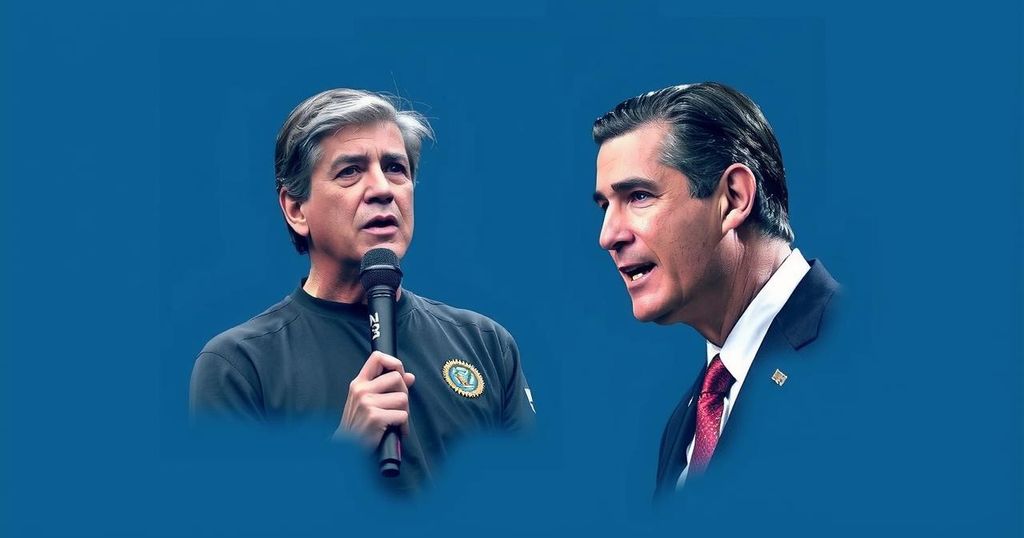Biden Administration Sanctions Venezuelan Officials After Disputed Election

On Wednesday, the Biden administration sanctioned 21 Venezuelan officials linked to President Maduro after a disputed presidential election in July. Targeted individuals include high-ranking members of intelligence and corrections services, amid a backdrop of significant unrest and protests in the country. Previous sanctions have failed to diminish Maduro’s control, raising questions on the efficacy of such measures. The situation remains tense as opposition leader González claims victory, while the government pushes back against these assertions.
On Wednesday, the administration of President Joe Biden imposed sanctions on 21 Venezuelan officials, including top figures in the corrections and intelligence sectors, as well as the chief of Maduro’s presidential office. These actions were prompted by the officials’ involvement in the repression surrounding the disputed presidential election held in July. These new sanctions join the ranks of numerous others targeting Maduro’s allies, emphasizing the United States’ commitment to holding accountable those undermining democratic processes in Venezuela.
Despite the sanctions, which include financial restrictions and travel bans, key members of Maduro’s regime continue to wield significant power, raising questions about the effectiveness of such measures. In a statement, Acting Under Secretary of the Treasury for Terrorism and Financial Intelligence, Bradley T. Smith, emphasized the United States’ resolve to combat violence and intimidation that threatens democratic governance.
The latest sanctions reinforce a long-standing effort to isolate Maduro loyalists, following previous similar actions against other prominent officials accused of violations against human rights and obstructing fair elections. In response, Venezuelan lawmakers are seeking to criminalize international sanctions, labeling them as crimes against humanity, which could complicate the dynamics between Venezuela and the international community.
The sanctions coincide with the Biden administration’s recent recognition of opposition leader Edmundo González as the legitimate president following the controversial election results. Maduro declared victory in an election marred by accusations of fraud, which has led to widespread unrest, with protests demanding the release of official polling data to verify claims of election manipulation.
Throughout this ongoing turmoil, González asserts he won by a substantial margin, but his claims have faced significant backlash from Maduro’s government, which insists that he is fabricating these results. The situation in Venezuela remains dynamic, with continued public demonstrations and political strife as citizens seek to restore credible governance.
The political landscape in Venezuela has been increasingly tumultuous, particularly following the disputed presidential elections in July. The legitimacy of the elections has been widely challenged, both domestically and internationally, leading to significant unrest and public demonstrations. The Biden administration’s sanctions reflect a broader strategy aimed at pressuring the Maduro regime, which has been accused of severe human rights violations and undemocratic practices. The U.S. has historically imposed various sanctions against members of the Maduro government, seeking to alter the political dynamics in Venezuela. However, despite these measures, many officials remain entrenched in power, raising critical discussions on the impact of economic sanctions and international diplomacy in addressing authoritarian governance.
In summary, the Biden administration’s recent sanctions against Venezuelan officials mark a continuation of efforts to challenge the Maduro regime’s actions following the controversial presidential elections. While the sanctions signify a commitment to promoting democratic governance and addressing human rights violations, the ongoing power of Maduro loyalists raises questions regarding the effectiveness of such measures. The situation remains fluid, with both international and internal pressures shaping the future of Venezuela’s political landscape as citizens advocate for transparency and legitimate leadership.
Original Source: www.newsweek.com







